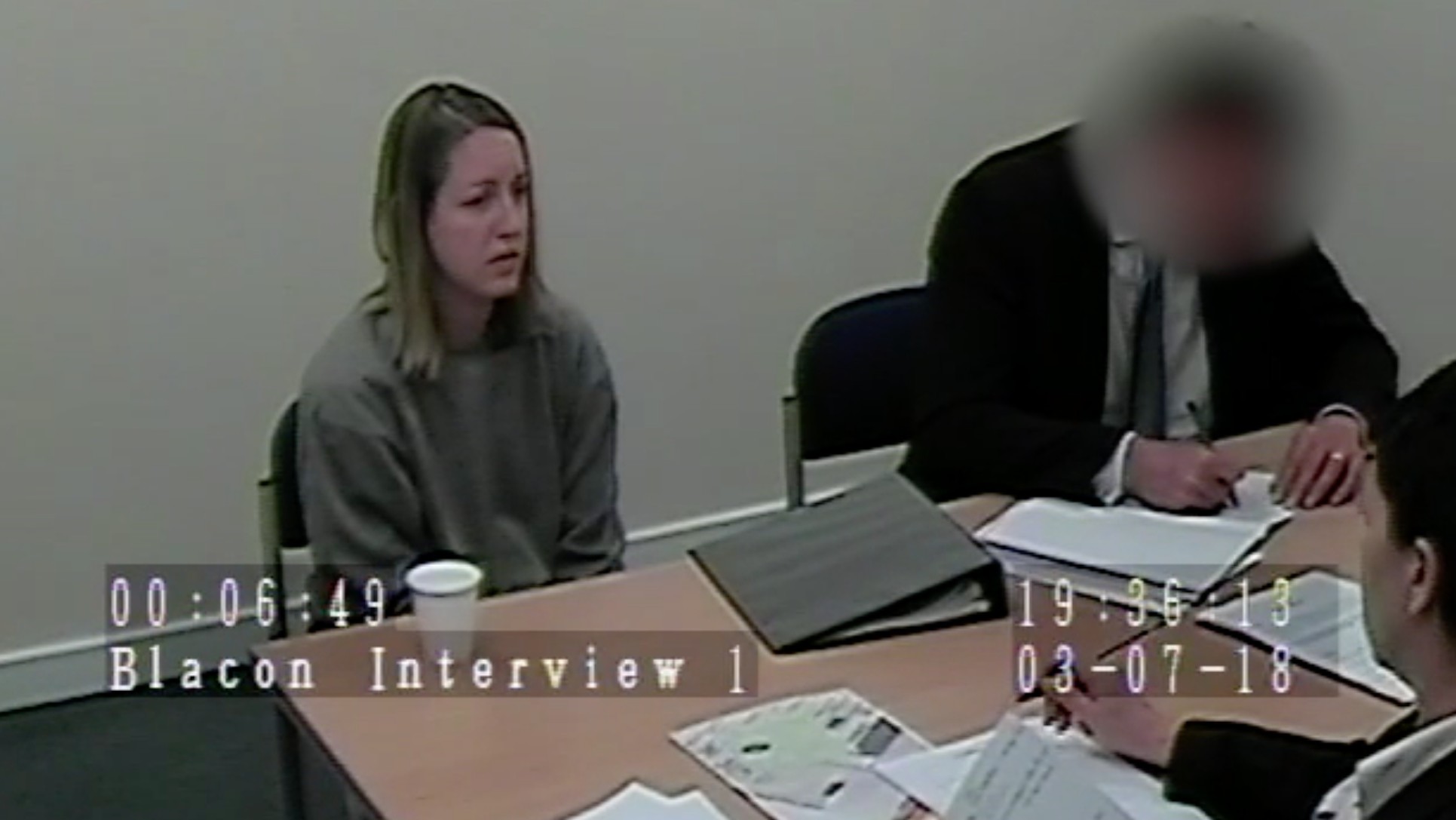Lucy Letby’s motivation: a ‘void’ in the harrowing case
Like most serial killers, the former nurse has been silent about what drove her to kill multiple babies

A free daily email with the biggest news stories of the day – and the best features from TheWeek.com
You are now subscribed
Your newsletter sign-up was successful
“The trial of Lucy Letby will be remembered as one of the longest and most complex cases in English legal history,” said Tom Ball in The Times. Twenty-two charges were brought against her, relating to 17 babies in the neonatal unit of the Countess of Chester Hospital during 2015 and 2016: seven allegations of murder, and 15 of attempted murder.
Despite the great complexity of the detail, the prosecution case was based on a simple assertion: Letby was the only “common denominator”, the only person present, at all 22 episodes – otherwise inexplicable collapses on a ward that generally saw very few such events. Most of them happened during night shifts, when Letby was on duty; when she was moved to day shifts the attacks started happening during the day; when she was moved to clerical duties, they stopped. The jury was also shown a series of apparent confessions: Post-It notes found in her home on which she admitted to having killed, and wrote: “I am evil I did this.”
Much of the early trial was bogged down by the minutiae of medical detail, said Nigel Bunyan in The Independent. But the harrowing reality of Letby’s crimes gradually came into focus. Dr B, a paediatrician, hidden by a screen, described the scene shortly after a newborn triplet “had died in agony – and entirely without reason – just 24 hours after his brother”. The boy’s father, lying crumpled on the floor, desperately pleaded to have his one surviving son taken away from the hospital. Most of the babies were killed by having air injected into their veins, or into their stomachs; some by having their tiny stomachs pumped up with milk.
The Week
Escape your echo chamber. Get the facts behind the news, plus analysis from multiple perspectives.

Sign up for The Week's Free Newsletters
From our morning news briefing to a weekly Good News Newsletter, get the best of The Week delivered directly to your inbox.
From our morning news briefing to a weekly Good News Newsletter, get the best of The Week delivered directly to your inbox.
Others who survived were poisoned with insulin. Her victims suffered terribly. Letby, prosecutors argued, derived a “sickening pleasure from her attacks”. It was, they said, a bonus if she could console the bereaved parents, or “help” them by preparing a memory box with the handprints and footprints of their lost baby.
There is “a void” that surrounds this case, said Sarah Vine in the Daily Mail – reflected in Letby’s cool, calm, blank demeanour. “The normal human mind searches desperately for a reason, an explanation – anything to help rationalise the horror. But with Letby, there is nothing.”
Why did she do these unthinkable things? She appeared to have been a very ordinary person, said Patrick Sawer in The Daily Telegraph: the detective leading the case described her as unremarkable, “beige”. The only child of two doting parents from Hereford (who attended the trial and remain fiercely loyal to her), Letby was a shy schoolgirl who had always wanted to be a nurse. She had plenty of friends, and two godchildren. Her life was an apparently normal one, with holidays to Ibiza, hen nights and salsa classes. She lived in a neat semi-detached house near the hospital, with a bedroom decorated with framed pictures of her godchildren and two cats, and filled with stuffed bears. When the consultant who ran her unit first considered that she might be responsible, he said: “It can’t be Lucy. Not nice Lucy.”
Like most serial killers, Letby has been silent about what drove her to kill, said David Wilson in The Observer. But the truth is that such cases rarely yield satisfactory answers. Harold Shipman, for instance, maintained his innocence until he killed himself; the subsequent inquiry reached no conclusion about his motive. “It really is only in TV dramas or on film that such murderers want to discuss what might have motivated them” – to allow the central character “to enter the mind of a serial killer”.
A free daily email with the biggest news stories of the day – and the best features from TheWeek.com
Letby was not a “dysfunctional loner”; there was no history of depression, let alone personality disorders or drug use. So we have to guess that she suffered from some kind of “toxic narcissism”.
Prosecutors proposed various theories in court, said Matt Matthers in The Independent: that she had attacked babies in order to gain the attention and sympathy of a doctor with whom she was “infatuated”; that she liked “playing God”; that she got a “thrill” from the parents’ “grief and despair”.
The closest she came to a confession was in her Post-It notes, said Josh Halliday in The Guardian. “I killed them on purpose because I’m not good enough to care for them,” she wrote. “I’ll never have children or marry... I’ll never know what it’s like to have a family.” Yet these fractured statements were never held up in court as proof of motive. Letby remains a deeply disturbing enigma: “a killer stalking the quiet, hopeful corridors of a hospital neonatal unit”.
But the truth is that Letby is far from the first nurse serial killer, said Peter Hurst on UnHerd. There was Beverley Allitt, who murdered four children in 1991, along with other cases: Colin Norris, Victorino Chua. People who commit serious crimes often do so through institutions that provide access to vulnerable people and cover for their activities. Nursing – like medicine, church work and policing – provides just such a “cloak of respectability”.